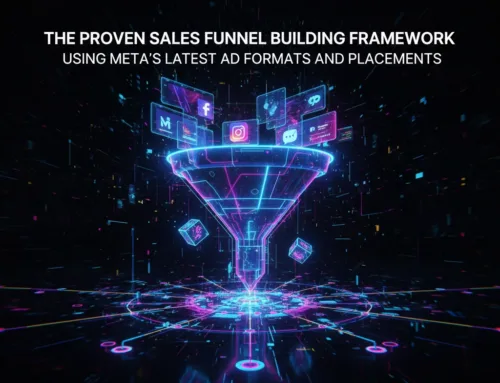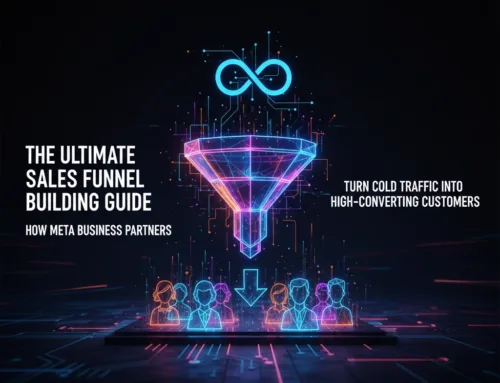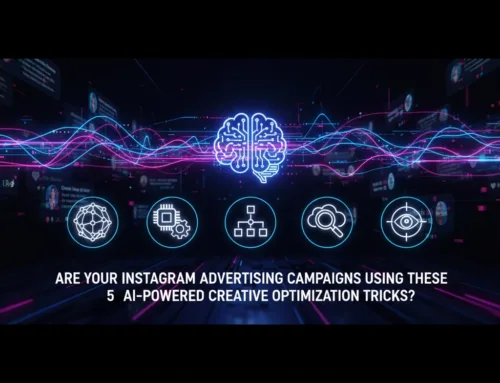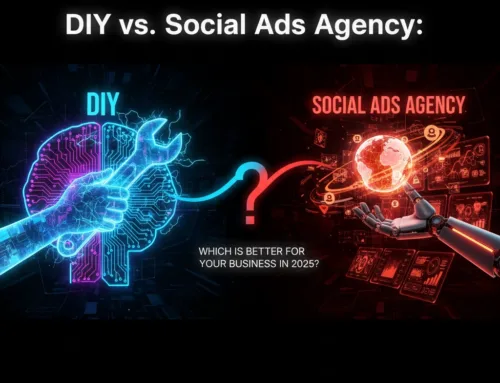Let's be real: Facebook ad management has been a rollercoaster. One day your campaigns are crushing it, the next day you're wondering why your ROAS tanked overnight. But Meta just dropped something that's about to change the game entirely: their Generative Ads Recommendation Model, or GEM.
This isn't just another update to brush off. GEM represents the biggest shift in how Facebook and Instagram ads work since the platform launched. As a social ads agency that's been in the trenches with countless paid advertising campaigns, we're seeing firsthand how this AI revolution is reshaping everything we thought we knew about facebook ad management.
What Makes GEM Different From Everything Before
Before we dive into the five ways GEM is changing the game, let's talk about what makes this AI model so revolutionary. GEM isn't just an improvement on existing systems: it's a complete paradigm shift.
Built using an LLM-inspired approach and trained across thousands of GPUs, GEM is now the largest foundation model for recommendation systems in the industry. Think of it as the ChatGPT of advertising, but specifically designed to understand the complex relationship between users, advertisers, and content at Meta's massive scale.

The old system was like having a really smart calculator. GEM is like having a brilliant strategist who never sleeps, constantly learning from billions of interactions to make your ads perform better.
1. Performance Gains That Actually Move the Needle
Here's the number that made us sit up and take notice: GEM delivers 4x more efficiency at driving ad performance gains compared to Meta's original ranking models. That's not a typo: four times more efficient.
What does this mean in practical terms? Your campaigns are getting 5% better conversions on average, which might not sound huge until you realize that's happening across every single ad in your account. For a digital marketing agency managing multiple clients, that 5% improvement compounds into serious revenue growth.
We're seeing this play out in real campaigns right now. Clients who were struggling to hit their target CPA are suddenly exceeding their goals without changing their strategy. The AI is just getting better at finding the right people at the right time.
2. Audience Targeting That Actually Understands People
Remember when Facebook's targeting felt like throwing darts in the dark? GEM processes way more information than the old system ever could. It's analyzing both sequence features (like what users did over time) and non-sequence features (age, location, creative preferences) using something called customized attention mechanisms.

In plain English: the AI now understands context in a way that feels almost human. It knows that someone who clicked on workout gear last month but has been browsing vacation content this week might be more interested in activewear for travel than heavy gym equipment.
For our paid advertising campaigns, this means we're reaching people when they're actually ready to buy, not just when they fit a demographic profile. The wasted spend on irrelevant audiences? That's becoming a thing of the past.
3. Campaign Creation That Runs on Autopilot
This is where things get really interesting. Meta is using GEM to automate the entire campaign creation process: we're talking imagery, video, text, and targeting. Their goal? Complete automation by the end of 2026.
We're already seeing this in action. Fashion brands upload a product photo and get multiple carousel ad variations with dynamic headlines automatically generated. SaaS companies create explainer videos that adapt based on who's watching: showing different interface layouts to different demographic groups.
The time savings alone are game-changing. What used to take 15 iterations of manual creative testing now happens automatically in the background. Your team can focus on strategy instead of endless A/B testing.
4. Knowledge Transfer That Makes Every Campaign Smarter
Here's something that blew our minds: GEM is 2x more effective at knowledge transfer. That means when one of your campaigns discovers something that works, that learning automatically improves performance across your entire ad account: and even across Facebook, Instagram, and WhatsApp simultaneously.
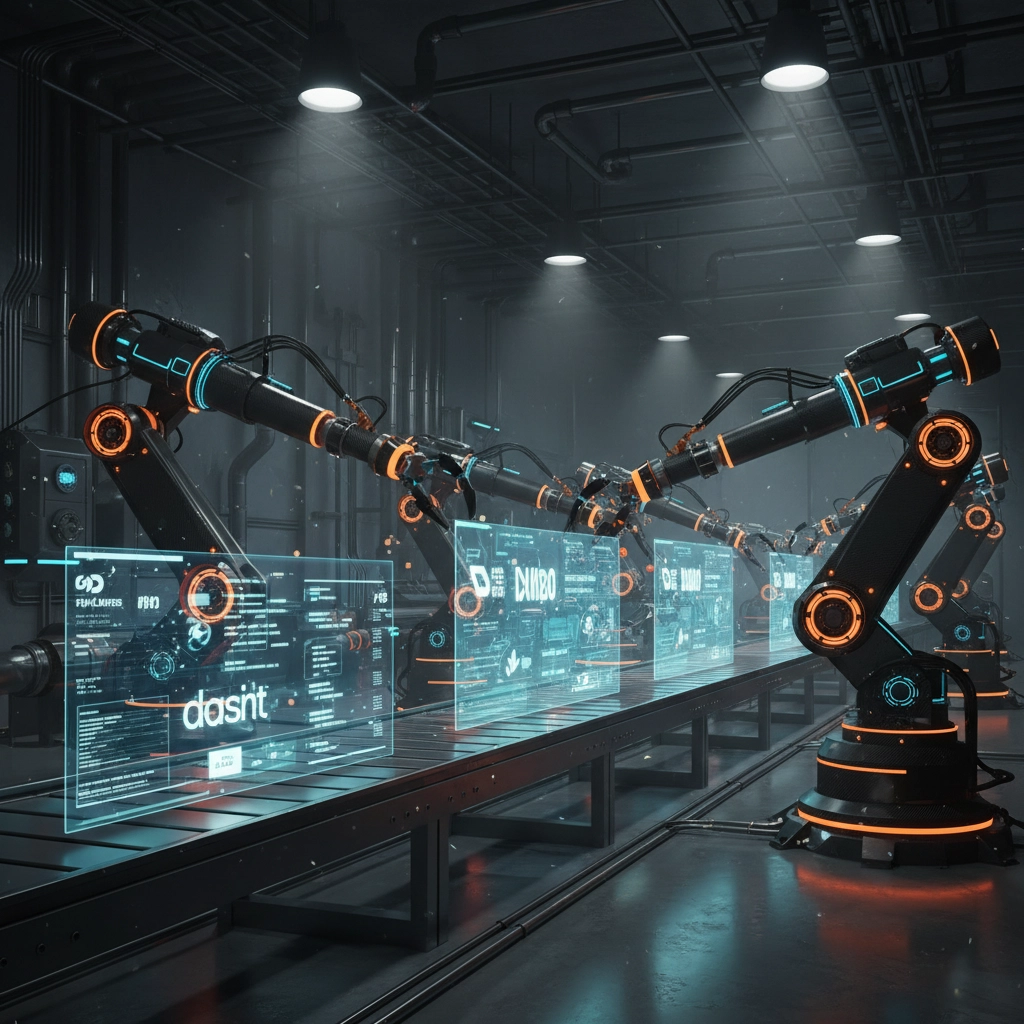
This is huge for social ads agency operations. Instead of manually applying learnings from successful campaigns to new ones, the AI is doing it automatically. Every campaign becomes a teacher for every other campaign in your account.
The system works together with Meta's other AI tools: Lattice (which handles ad ranking) and Andromeda (which personalizes ads based on individual user history). It's like having a team of AI specialists working 24/7 to optimize your campaigns.
5. Budget Optimization That Never Takes a Day Off
Manual budget allocation is officially dead. GEM powers automated bidding and budget allocation that adjusts in real-time based on performance data, CPA forecasts, and even seasonal trends.
Tools like Advantage+ Budget automatically shift money between Facebook, Instagram, and WhatsApp based on which channels are delivering the best returns. No more logging in at 6 AM to move budget from underperforming placements.
Over 75% of marketers are expected to use Meta AI tools by 2025, and the ones who adopt early are seeing the biggest gains. We're tracking clients who've achieved 3x performance improvements in under six months just by letting the AI handle optimization.
What This Revolution Means for Your Business
The biggest change? Facebook ad management just became accessible to businesses that couldn't afford dedicated ad teams before. The same AI optimization that Fortune 500 companies use is now available to small and medium-sized businesses.
But here's the catch: you need clean data to make this work. That means proper CRM hygiene, accurate Pixel tracking, and activating Advantage+ targeting and creatives. When implemented correctly, businesses are seeing ROAS gains of 20-30%.

More than 4 million advertisers are already using AI in their campaigns, and with Meta investing $14-15 billion in AI infrastructure, these capabilities are only getting stronger. The competitive advantage now belongs to businesses that adopt these tools quickly and strategically.
The Bottom Line
Manual ad management is becoming as outdated as managing websites without analytics. GEM isn't just changing how ads work: it's changing who can succeed with advertising.
Whether you're running campaigns in-house or working with a digital marketing agency, understanding GEM's capabilities is crucial for staying competitive. The AI revolution isn't coming: it's here, and it's already transforming how successful businesses approach paid advertising.
The question isn't whether you should embrace these AI tools. The question is how quickly you can implement them before your competitors do.

